September 1, 2020
In 1996, the Lusty Lady in San Francisco became the first strip club in the country to successfully unionize, making history for the entire informal labor sector, including sex work. Despite the club’s closure in 2013, “Lusties,” as the dancers call themselves, remain a symbol of resilience and empowerment in an industry so often criticized for exploitation.
Siobhan Brooks, a dancer in the Lusty Lady peep show who went on to earn her Ph.D. in Sociology, played a pivotal role in unionization. Brooks observed that the club hired very few women of color and rarely allowed Black women to work in the private booth section, where dancers made larger tips. She raised her concerns with management and was told that "[B]lack women make the club lose money." In response, Brooks filed a racial discrimination complaint with the Equal Employment Opportunity Commission. Employees voted in favor of unionizing, and the club was organized by the Exotic Dancers Union, an affiliate of Service Employees International Union (SEIU). The next year the Lusty Lady hired more Black women than it ever had before. Brooks later authored “Organizing From Behind the Glass,” an account of the successful unionizing effort, for the January 1997 issue of Z Magazine.
In 2001 Roger Forbes, a strip-club magnate and partner in Déjà Vu, a company that owns most of the adult theaters and clubs in San Francisco, bought the building and doubled the rent. The owners were facing incredible pressure to close. In response, dancers at the Lusty Lady pooled together $400,000 and purchased the club. For the next 10 years, the Lusty Lady functioned as a worker-run cooperative known for defying stereotypes of tanned, blonde strippers favored by traditional club management.
The Lusties are the inspiration for a growing number of “Stripper Strikes” across the country. In Minneapolis, New York City, Portland, and beyond, dancers began organizing to oppose racist hiring practices, wage theft by management, and a lack of labor and safety protection in clubs. We Are Dancers USA, a national harm-reduction and advocacy organization, was founded in 2018 to empower strippers across the country in response to a gap in resources tailored explicitly to dancers. The organization grew out of We Are Dancers NYC, a local organization founded by dancers and allies, including DSW’s Melissa Broudo.
The NYC Stripper Strike partnered with Broudo and DSW colleague Crystal DeBoise to raise awareness around discrimination and exploitation in city clubs, gaining support from the International Women’s Strike. In response to a report by the Minneapolis Health Department that raised concerns about many city clubs, SWOP Minneapolis partnered with Minnesota State University to successfully pass a city ordinance protecting strippers’ rights in 2019. In Portland, the Haymarket Pole Collective’s grassroots activism has spurred the city’s clubs to adopt mandatory anti-racism training, enforce fair labor practices, and maintain racial equity in hiring practices.
DSW is proud to be a part of the Lusty Lady’s legacy, building equity and empowerment for all workers.
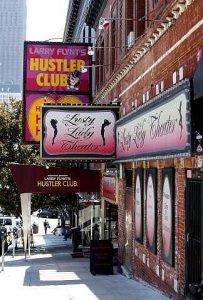
The facade of the Lusty Lady in San Francisco shortly before the club closed in 2013. (Photo: Sarah Rice, Special to The Chronicle, 2013)
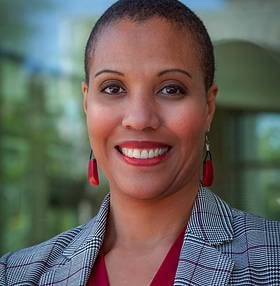
Siobhan Brooks, a former dancer at the Lusty Lady, is now an associate professor of African American studies at California State University, Fullerton, and continues to advocate for sex worker rights. (Photo: NY Times, 2019)
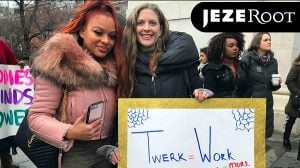
Gizelle Marie (left), founder of the NYC Strippers Strike, marches for stripper labor rights with DSW’s Melissa Broudo. (Photo: SOAR Institute, 2018)
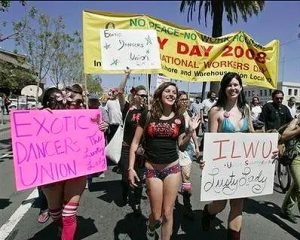
Performers from the Lusty Lady represent the Exotic Dancers Union at the 2008 May Day March in San Francisco. (Photo: LA Times, 2008)
DSW Newsletter #18 (September 2020)
Hero(es) of the Month: Honoring the Dancers of the Lusty Lady
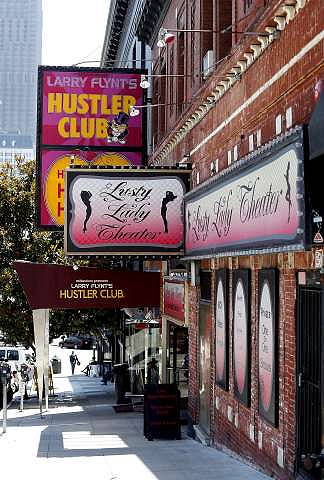
The Second Anniversary of Sex Worker Pride
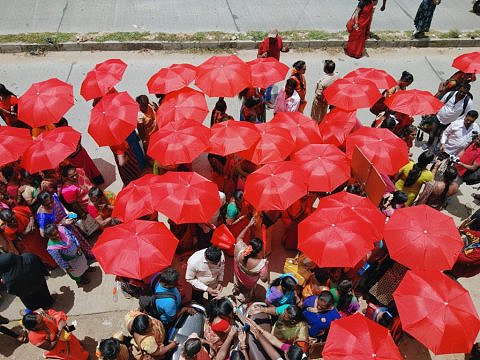
De Blasio To Change NYC Sex Work Policy
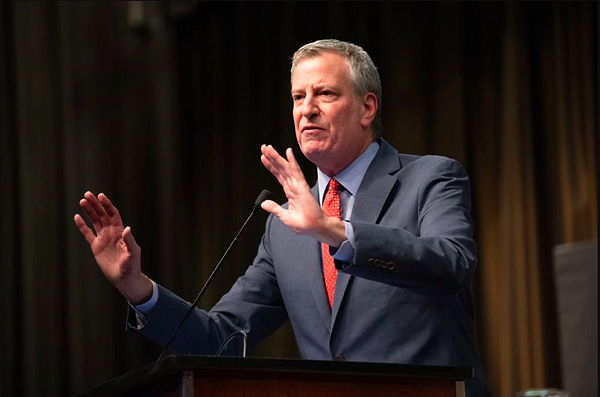
OnlyFans’ New Policy Endangers Sex Workers During COVID-19

DSW’s Melissa Broudo Featured in Film Series on Inspirational Women
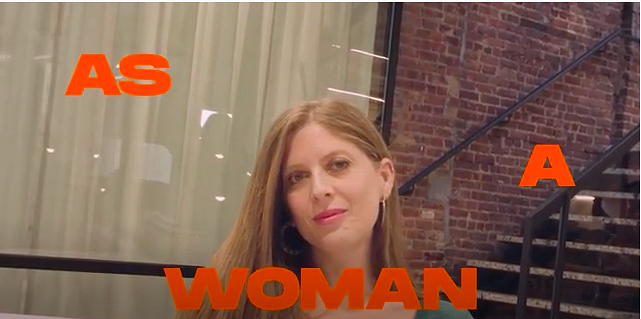
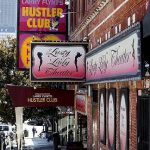 Hero(es) of the Month: Honoring the...
Hero(es) of the Month: Honoring the...
 The Second Anniversary of Sex Worker...
The Second Anniversary of Sex Worker...
 De Blasio To Change NYC Sex...
De Blasio To Change NYC Sex...
 OnlyFans’ New Policy Endangers Sex Workers...
OnlyFans’ New Policy Endangers Sex Workers...
 DSW’s Melissa Broudo Featured in Film...
DSW’s Melissa Broudo Featured in Film...
